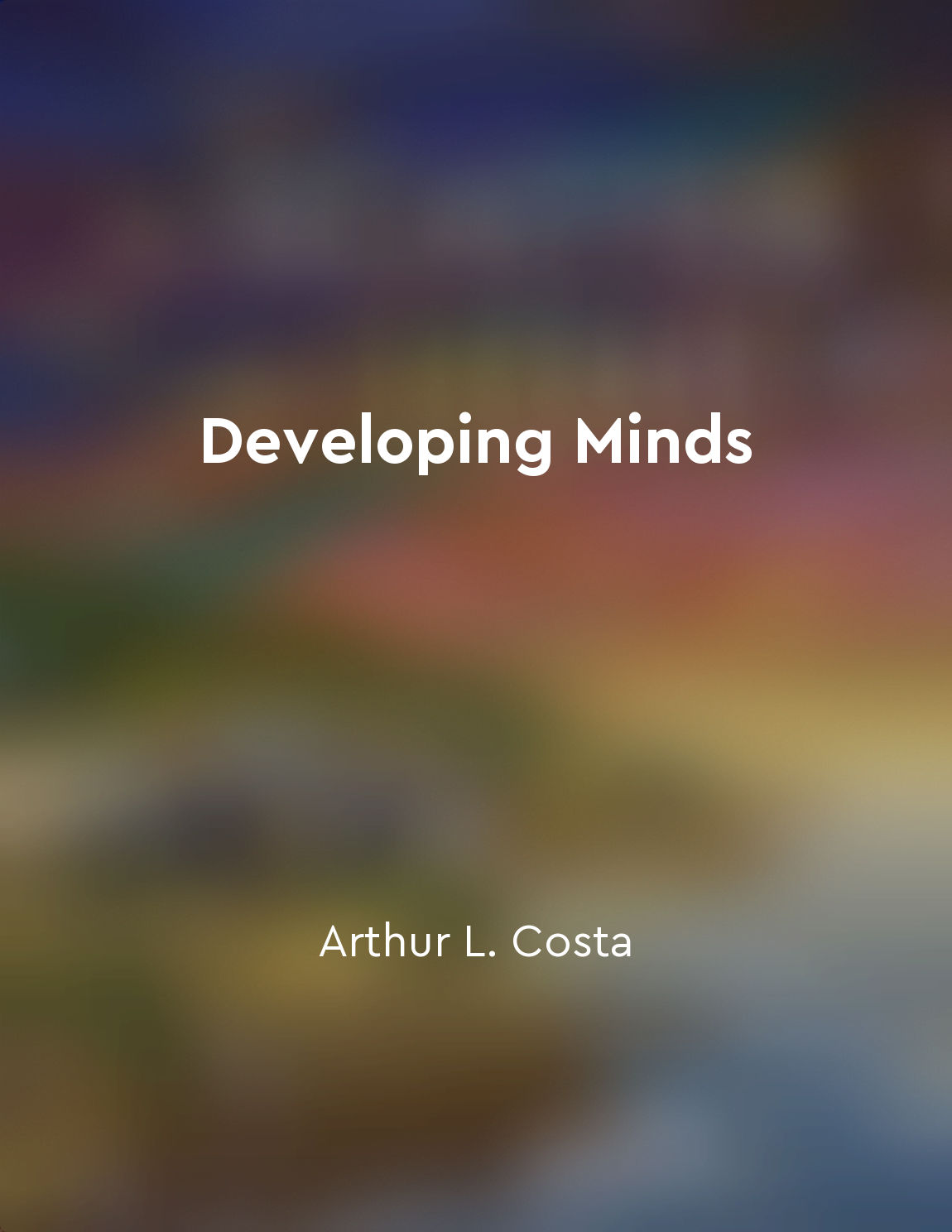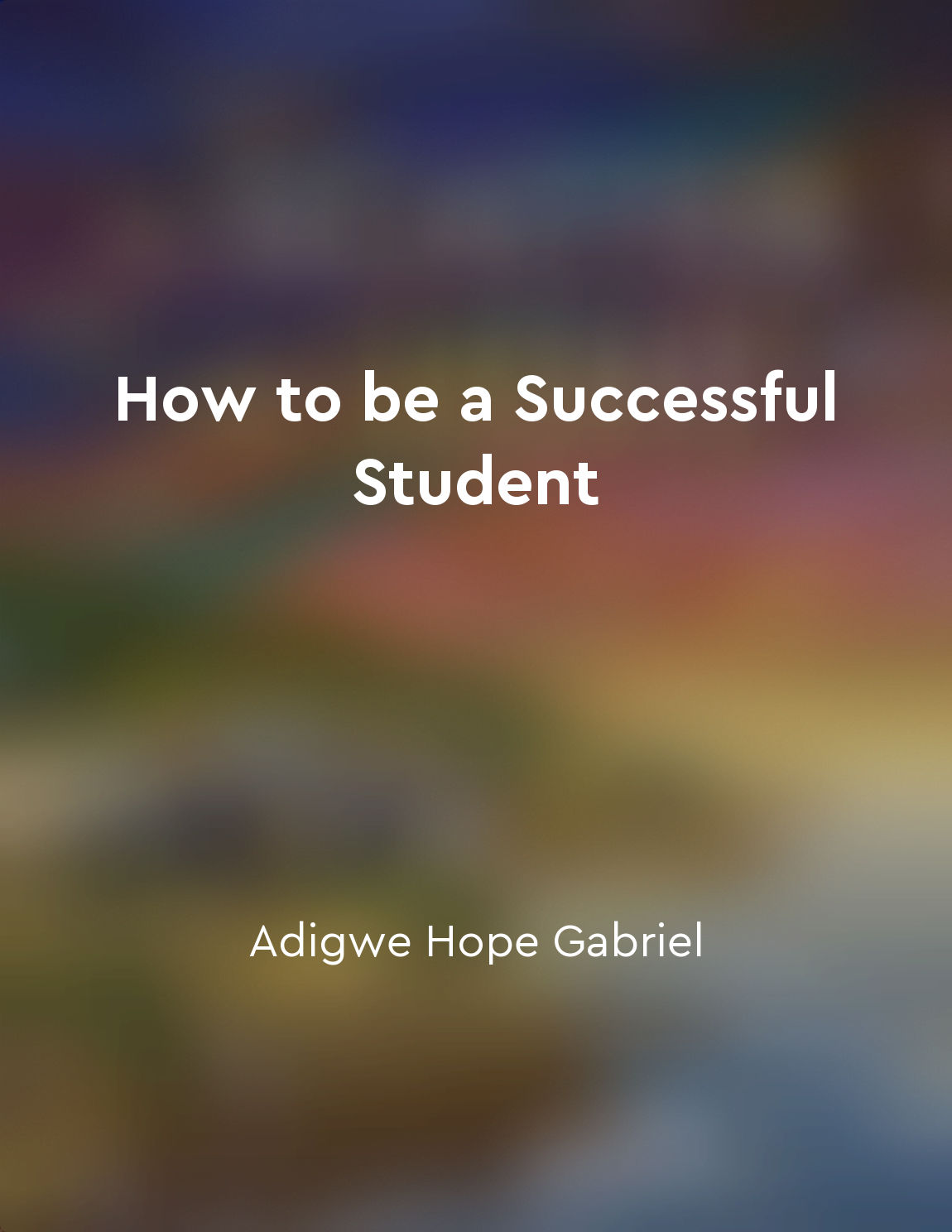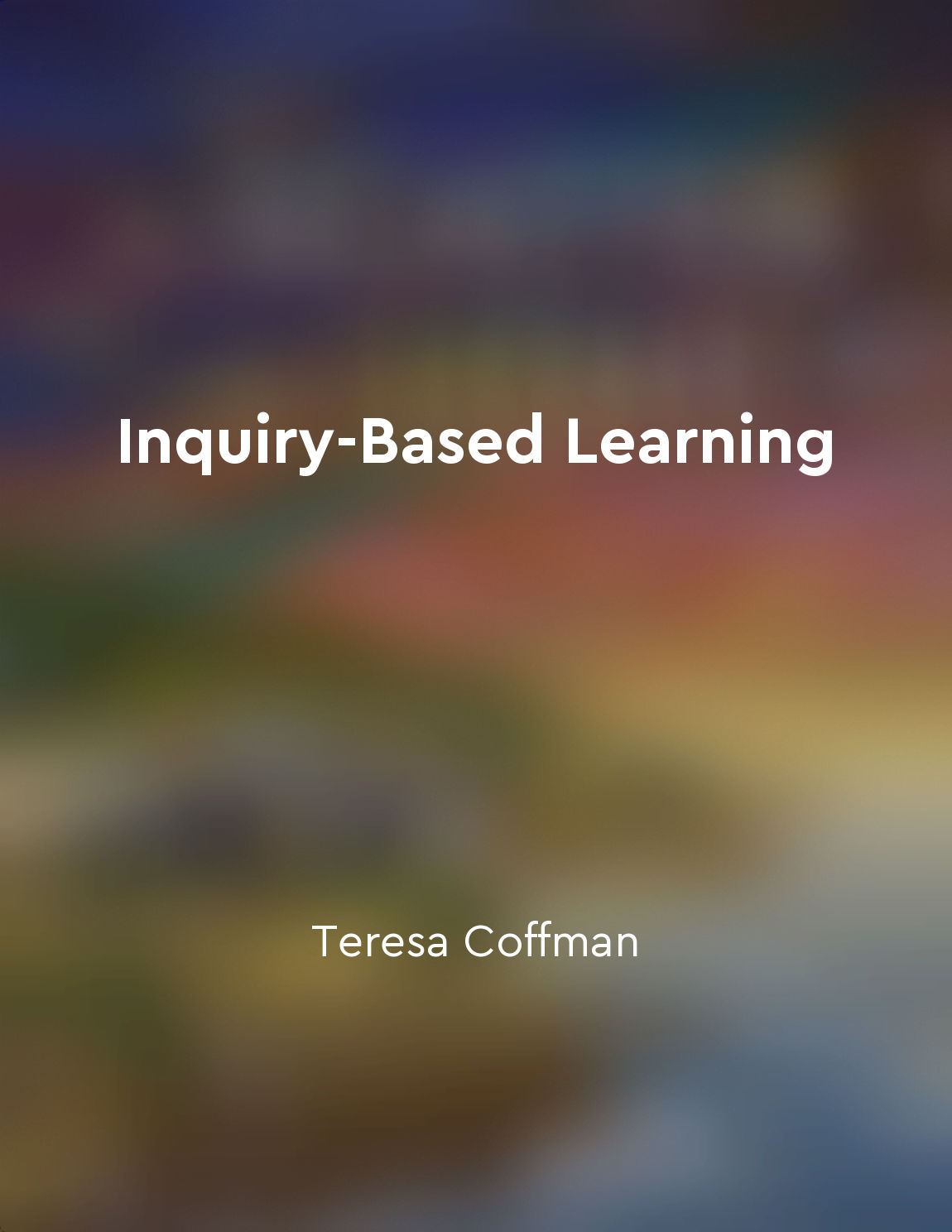Students become active participants in their education from "summary" of Inquiry-Based Learning by Teresa Coffman
Inquiry-based learning places students at the center of their educational experience. Instead of passively receiving information from teachers, students are actively engaged in the learning process. This shift in roles empowers students to take ownership of their education, fostering a sense of responsibility and independence. By becoming active participants in their learning, students are more likely to be motivated and invested in their studies. Inquiry-based learning encourages students to ask questions, seek out answers, and think critically about the information they encounter. This approach promotes a deeper understanding of the material, as students are actively involved in making connections and drawing conclusions. Through this process, students develop important skills such as problem-solving, information literacy, and communication. By actively engaging with the material, students are able to personalize their learning experience. This customization allows students to explore topics that interest them, making the learning process more relevant and meaningful. As a result, students are more likely to retain the information they have learned and apply it to real-world situations. Inquiry-based learning also promotes collaboration among students. By working together on projects and investigations, students are able to share ideas, perspectives, and knowledge. This collaborative approach not only enhances the learning experience but also helps students develop important social and communication skills.- Inquiry-based learning transforms students from passive recipients of information to active participants in their education. This shift empowers students to take control of their learning, develop important skills, and engage with the material in a meaningful way. By embracing this approach, educators can create a dynamic and engaging learning environment that fosters curiosity, critical thinking, and lifelong learning.
Similar Posts

Cognitive flexibility is a valuable asset for developing minds
Cognitive flexibility is indeed a valuable asset for developing minds. This ability allows individuals to adapt to new situatio...

Finding a study method that works for you is key
To excel in your academic pursuits, it is essential to discover a study method that suits your unique learning style. This is a...
Value collaboration and cooperation in thinking
Collaboration and cooperation in thinking are essential elements that contribute to the development of effective and meaningful...
Use questions to strengthen relationships
The art of asking questions is a powerful tool that can be used to deepen our relationships with others. By asking thoughtful a...
Finding motivation in personal interests
One of the most effective ways to stay motivated while preparing for exams is by tapping into your personal interests. When you...
They consider implications and consequences
When faced with a problem or decision, individuals who possess critical thinking skills go beyond simply identifying the issue ...
Simplifying complex problems leads to clarity
When faced with complex problems, it is essential to break them down into simpler components. By simplifying complex problems, ...
Children learn at their own pace
The idea that children learn at their own pace is a fundamental principle of education. It recognizes that each child is unique...
Encouraging a love for learning
The essence of 'Siksha o sahitya' lies in fostering a deep-rooted passion for acquiring knowledge. This concept transcends the ...
Expertise requires extensive knowledge
To be an expert in a subject, one must have a vast amount of knowledge about that subject. This is because expertise requires e...


